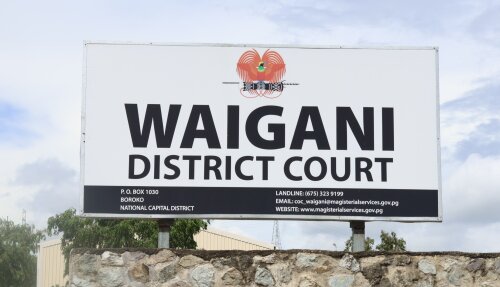Best Mortgage Lawyers in Port Moresby
Share your needs with us, get contacted by law firms.
Free. Takes 2 min.
Free Guide to Hiring a Real Estate Lawyer
List of the best lawyers in Port Moresby, Papua New Guinea
About Mortgage Law in Port Moresby, Papua New Guinea
In the capital city of Papua New Guinea, Port Moresby, the mortgage law is straightforward. Mortgages are typically provided by banks and other lending institutions, and are legalized contractual agreements between the lender and the borrower. These contracts allow borrowers to obtain necessary finance for purchasing real estate, such as homes and commercial properties. The property itself serves as collateral in case the borrower defaults on the loan.
Why You May Need a Lawyer
Legal assistance can be beneficial in numerous mortgage-related situations. One common situation is when purchasing property, where you may need a lawyer to ensure the mortgage contract is fair and lawful. Instances of misunderstanding the terms of the mortgage agreement or if you're facing possible foreclosure, legal guidance might be vital. Additionally, a lawyer can assist in modifying a mortgage or in resolving disputes with your lending institution.
Local Laws Overview
The local laws in Port Moresby require all mortgage contracts to be in writing and be registered with the Registrar of Deeds after execution. Papua New Guinea’s financial system is regulated under the legal framework of the Central Banking Act, the Banks and Financial Institutions Act, and series of prudential standards issued by Bank of Papua New Guinea (BPNG). These laws govern the activities of banks and other financial institutions, protecting borrowers and ensuring fair practices.
Frequently Asked Questions
1. Can I own land in Port Moresby as a foreigner?
According to the Land Act 1996, foreign individuals and companies are prohibited from owning freehold land in Papua New Guinea. However, they can acquire a leasehold interest in land with lease periods typically up to 99 years.
2. What happens if I default on my mortgage payments?
If you default on your mortgage payments, the lender has a right to file a foreclosure lawsuit. You will be notified of this and given an opportunity to make the outstanding payments. If payments are not made, the property might be sold at auction to repay the debt.
3. Can I modify my mortgage?
Yes, it's possible to modify your mortgage. This often involves negotiating with the bank or lender to alter the terms of the contract to possibly reduce the interest rate or extend the loan term, to render the repayments more manageable.
4. How does the foreclosure process work?
If the borrower fails to make their mortgage payments, the lender can initiate the foreclosure process. The borrower will be given notice of this and an opportunity to pay the outstanding amount. If the borrower still can't pay, the property will go to a public auction.
5. Can a lawyer help me avoid foreclosure?
Yes, a lawyer can help negotiate with the lender to modify the terms of the mortgage or establish a payment plan. Additionally, they can help ascertain whether any lending laws were violated when the mortgage was issued, which could be a defense against foreclosure.
Additional Resources
The Bank of Papua New Guinea is the central bank and provides regulatory guidance for all banks and lending institutions. They provide various resources including publications and financial inclusion strategies. The Investment Promotion Authority (IPA) is also a helpful source of information for foreigners interested in acquiring a leasehold land.
Next Steps
If you require legal assistance for mortgage issues in Port Moresby, your first step should be consulting with a professional. Seek out a lawyer with experience in real estate and mortgage law. Be prepared to provide them with all the pertinent details about your situation, so they can provide the most appropriate advice. Additionally, you might want to seek advice from financial advisers or other professionals experienced in this area.
Lawzana helps you find the best lawyers and law firms in Port Moresby through a curated and pre-screened list of qualified legal professionals. Our platform offers rankings and detailed profiles of attorneys and law firms, allowing you to compare based on practice areas, including Mortgage, experience, and client feedback.
Each profile includes a description of the firm's areas of practice, client reviews, team members and partners, year of establishment, spoken languages, office locations, contact information, social media presence, and any published articles or resources. Most firms on our platform speak English and are experienced in both local and international legal matters.
Get a quote from top-rated law firms in Port Moresby, Papua New Guinea — quickly, securely, and without unnecessary hassle.
Disclaimer:
The information provided on this page is for general informational purposes only and does not constitute legal advice. While we strive to ensure the accuracy and relevance of the content, legal information may change over time, and interpretations of the law can vary. You should always consult with a qualified legal professional for advice specific to your situation.
We disclaim all liability for actions taken or not taken based on the content of this page. If you believe any information is incorrect or outdated, please contact us, and we will review and update it where appropriate.











